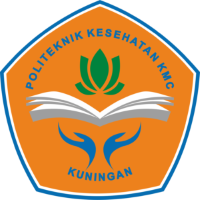The Relationship Between Sleep Quality and Stress Levels in Nursing Professional Study Program Students at Muhammadiyah University of Jember
DOI:
https://doi.org/10.61166/clean.v2i2.15Keywords:
Sleep quality, Stress Level, Nursing Profession StudentsAbstract
Background: The final period of the Nursing professional study is a critical period for students, because this period is full of processes that require students to complete their education on time. Students often experience stress in completing nursing professional tasks, both from within and outside themselves. Internal stressors faced by Thesis students such as difficulty in obtaining references, limited research time, repeated revision processes, difficulties in finding themes, titles, samples, and measuring tools for the final assignment. Meanwhile, stressors originating from outside such as limited funds, busy and difficult to meet supervisors, long feedback from supervisors, and lack of consultation with supervisors when completing the Nursing Science study program cause students to experience stress which causes sleep pattern disorders in students Method: : This study design uses a correlational approach with a cross-sectional approach. The population in this study was an average of 106 people formulated by the Slovin formula to 84 people. The sampling used was non-probability sampling with a quota sampling technique. Data collection on sleep quality with stress levels used a Likert scale. Data analysis used Spearman Rho with the provision of α ≤ 0.05. Results: It is known that in the University of Muhammadiyah Jember Nursing Profession study program, there are 54 people (64.3%) who experience adequate sleep quality and moderate stress levels of 54 people (64.3%). Based on statistical tests using Spearman-Rho, the results obtained p-value = 0.000 (α <0.05) with a correlation of 0.820. This indicates that H1 is accepted, thus there is a relationship between variables x and y which means there is a relationship between sleep quality and stress levels of students with a strong relationship strength. Conclusion: There is a relationship between sleep quality and stress levels in students of the Nursing Profession study program, University of Muhammadiyah Jember.
References
Agustuani, N. (2023). Hubungan gangguan tidur dengan prestasi akademik mahasiswa keperawatan. Jurnal Ilmu Keperawatan Nusantara, 13(1), 25–31. https://doi.org/10.25077/jiken.v13n1.p25-31.2023
Akhir, F., Yulia, R., & Putri, M. (2021). Tingkat stres pada mahasiswa profesi Ners dalam menyusun skripsi. Jurnal Keperawatan Integratif, 9(2), 101–109.
Anri, M. (2021). Hubungan tingkat stres dengan kualitas tidur pada mahasiswa tingkat akhir Universitas Bhakti Kencana. Jurnal Keperawatan Respati, 3(1), 34–40.
Bahrum, M. (2017). Tiga peran penting mahasiswa: moral, sosial, dan intelektual. Jurnal Pendidikan Karakter, 7(2), 233–241.
Damayanti, D., Purwanti, R., & Anggraini, D. (2021). Hubungan stres akademik dan kualitas tidur terhadap sindrom pramenstruasi selama pembelajaran daring di masa pandemi COVID-19. Jurnal Keperawatan (JKEP), 6(2), 142–149. https://doi.org/10.33369/jkep.v6i2.149
Duli, A. (2019). Metodologi Penelitian Ilmu Sosial dan Pendidikan. Yogyakarta: Ar-Ruzz Media.
Elieser, J. (2021). Hubungan tingkat stres dengan gangguan pola tidur pada mahasiswa tingkat akhir di Universitas Sari Mulia. Jurnal Keperawatan Suaka Insan, 12(2), 88–94.
Firdhaus, A. D. (2022). Pola tidur dan pengaruhnya terhadap fungsi kognitif mahasiswa. Jurnal Ilmu Kesehatan Bakti Tunas Husada, 21(1), 55–62.
Frendy, M. P. (2022). Tingkat stres pada mahasiswa dan kaitannya dengan gangguan tidur. Jurnal Psikologi dan Pendidikan, 14(1), 44–51.
Hardianti, R., Wahyuni, S., & Anindita, R. (2021). Gangguan tidur pada mahasiswa keperawatan yang mengalami stres akademik. Jurnal Keperawatan Respati, 6(2), 98–105.
Heiman, T., & Kerem, E. (2005). Sleep disturbances and academic functioning among college students. International Journal of Stress Management, 12(3), 278–287.
Hilaria, C. (2022). Konsep stres dan koping mahasiswa dalam menghadapi tugas akhir. Jurnal Keperawatan Holistik, 10(1), 50–57.
Ikhtiari, M. (2022). Fisiologi tidur dan implikasinya pada mahasiswa dengan beban akademik tinggi. Jurnal Neuropsikologi Klinis, 4(1), 22–29.
Iqbal, A. (2018). Studi stres mahasiswa yang menyusun skripsi. Jurnal Konseling dan Pendidikan, 6(2), 73–78.
Kushida, C. A., Simon, R. D., Grauke, J. H., Hyde, P. R., & Dement, W. C. (2000). Sleep disorders and academic performance in college students. Sleep Research Online, 3(1), 23–30.
Makaba, L. (2022). Tahapan tidur dan gangguan tidur pada mahasiswa keperawatan. Jurnal Ilmu Keperawatan Indonesia, 10(1), 37–45.
Oktaviani, R., Nurhasanah, S., & Widyaningtyas, S. (2021). Tingkat stres dan strategi coping mahasiswa saat mengerjakan tugas akhir. Jurnal Ilmu Keperawatan Indonesia, 9(1), 50–58.
Ratustama, A., Wulandari, S., & Prasetya, A. (2022). Desain penelitian korelasional dalam keperawatan. Jurnal Ilmu Kesehatan Medika, 11(3), 70–76.
Sigalingging, S., Hutahaean, R. R., & Situmorang, T. (2021). Teknik sampling dan aplikasinya dalam penelitian kuantitatif keperawatan. Jurnal Riset Kesehatan, 9(2), 99–106.
Windi, T. (2022). Kualitas tidur berhubungan dengan insomnia pada mahasiswa keperawatan semester akhir. Jurnal Keperawatan Sains, 4(1), 10–17.
Wulandari, F., & Santosa, R. (2022). Edukasi manajemen stres efektif menurunkan tingkat kecemasan pada mahasiswa. Jurnal Kesehatan STIKES Ngudia Husada Madura, 13(1), 30–37. https://doi.org/10.35891/jk.v13i1.4622
Downloads
Published
How to Cite
Issue
Section
License
Copyright (c) 2025 Saiful Rizal, Sofia Rhosma Dewi, Yeni Suryaningsih

This work is licensed under a Creative Commons Attribution 4.0 International License.









 Politeknik Kesehatan KMC Kuningan
Politeknik Kesehatan KMC Kuningan